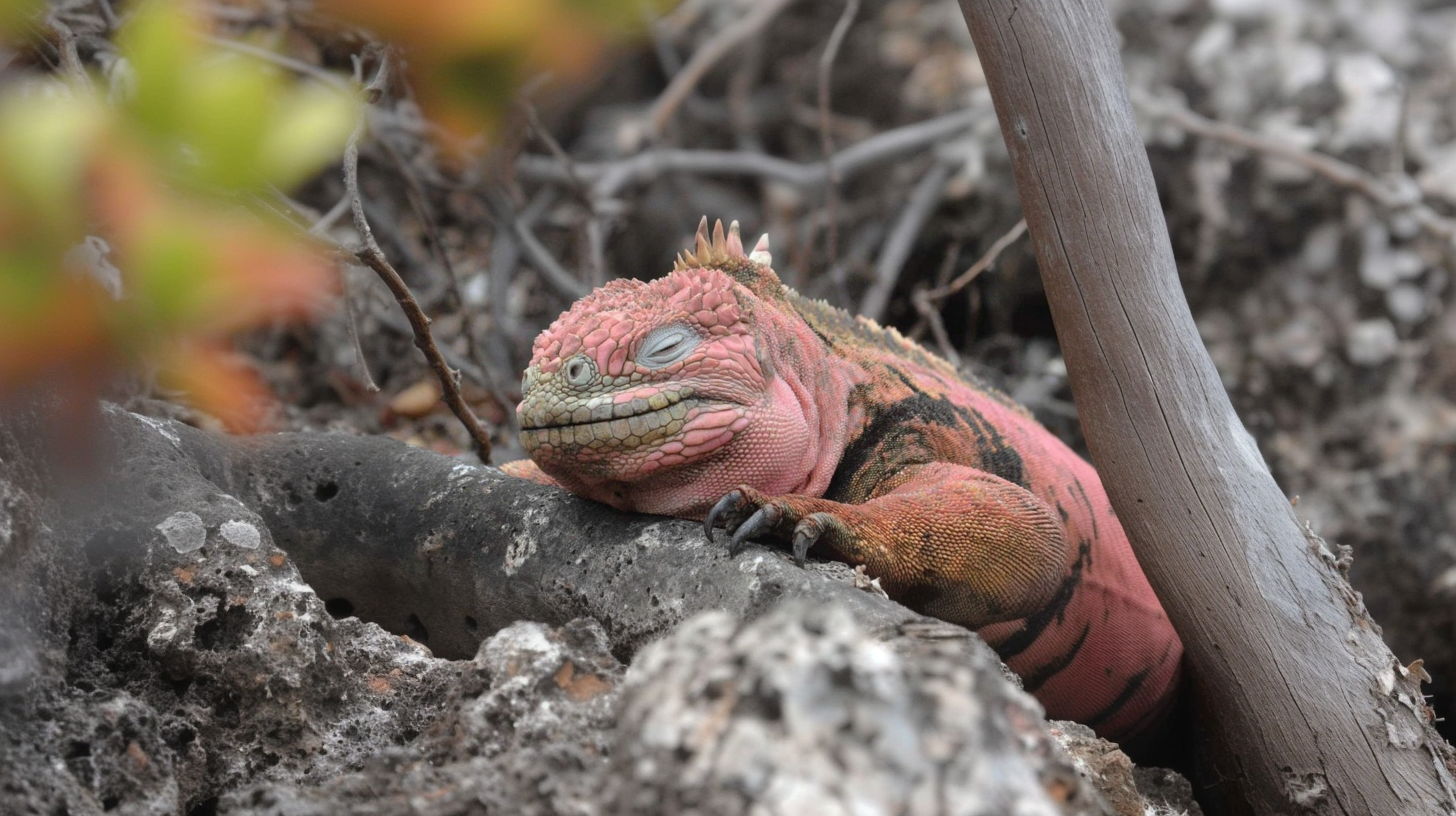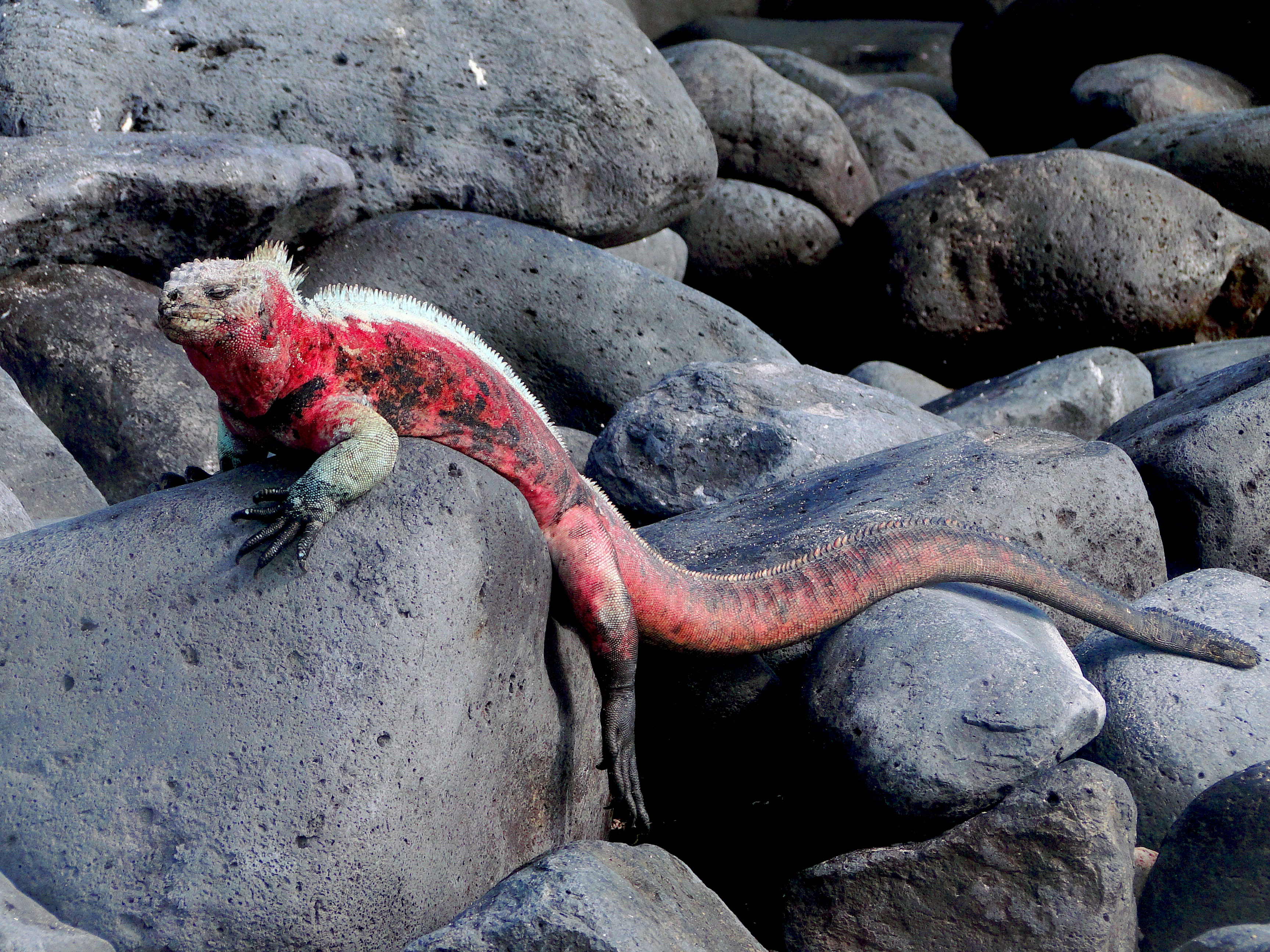
Evolution is constant and ever-changing, and in Galapagos, we witness it every day. Darwin’s legacy didn’t end with On the Origin of Species; the islands remain a living laboratory for scientific discovery, where ongoing research continues to reveal the inner workings of this delicate ecosystem.
Known for their adaptability, iguanas evolve to thrive in new environments in ways that benefit their entire ecological communities. One of the oldest known examples of evolutionary diversification in the Galápagos is the Pink Land Iguana. For years, researchers could only locate adult specimens, raising concerns about the species’ future.
Teamwork between the Galapagos National Park and Galapagos Conservancy
With a shared goal of conservation, the Galapagos National Park and Galapagos Conservancy have been working together to protect the Pink Land Iguana. During a 2021 expedition to Wolf Volcano on Isabela Island—the species’ only known habitat—scientists estimated the total population at just 211 individuals. As one of the archipelago’s most critically endangered species, the pink iguana faces serious challenges. But thanks to scientific dedication, persistence, and the use of modern technology, hatchlings have now been observed in the wild, offering a sign of hope.

Positive Signs of Population Growth
On April 17, 2025, the Galapagos National Park and Galapagos Conservancy announced promising results from their latest expedition: six new individuals were identified, in addition to the 68 that have been actively monitored. GPS trackers and camera traps were also installed during the fieldwork to gather crucial information about the iguanas’ diet and movement patterns, further supporting conservation efforts for this unique species.
Galapagos Conservancy is a key partner in our sustainability initiatives. Learn more about how we prioritize conservation in everything we do and how your Galapagos trip leaves a positive mark in the islands: https://www.galapagosislands.com/agency/sustainability.html
Read the Galapagos Conservancy article here!
